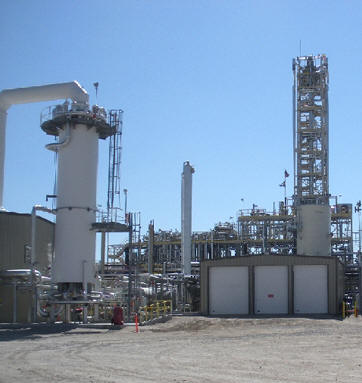
| NEWSROOM |
|
|
 |
|
|
|
|
|
|||
|
By Mike Mitchell |
||||
 |
February 16, 2010
- British Airways, in partnership with the Solena Group, is to establish
The self-contained
plant, likely to be sited in east London, will convert 500,000 tonnes of
waste per year into 16 million gallons of green jet fuel through a
process that offers lifecycle greenhouse gas savings of up to 95 per
cent compared to fossil-fuel derived jet kerosene.
|
|||
|
Dr Robert Do, chairman and chief executive of the Solena Group said: "The Solena - British Airways BioJetFuel project will efficiently convert biomass into clean renewable fuels and electricity and is completely carbon neutral. The plant will be a state-of-the-art renewable fuel manufacturing facility, distinct from a standard waste to energy incinerator facility. It will not produce any polluting emissions or undesirable by-products." |
||||
|
The Mayor of London has recently set out his vision
to save millions from the city's waste bills.
This project could be part of the solution.
The Mayor of London, Boris Johnson, said:
"I welcome this fantastic new 'carbon lite' fuel production
facility in 1. The green
fuel will be produced by feeding waste into a patented high temperature
gasifier, producing BioSynGas.
An established process known as Fischer Tropsch then converts the
gas into biofuels to produce biojet fuel and bionaphtha.
Bionaphtha is used as a blending component in petrol and also as
a feedstock for the petrochemicals industry. 2. The plant
will emit oxygen, plus small quantities of nitrogen, argon, steam (water
vapour), and CO2. The plant itself will be CO2 neutral. The Fischer
Tropsch tail gas can be used to produce 20MW of excess electricity for
export to the national grid or converted into steam to be used in a
district heating system. The only solid waste product is an inert
vitrified slag material, which can be used as an alternative to
aggregates used in construction. 3. The overall
equivalent CO2 reduction as a result of the plant producing sustainable
energy and fuel is approximately 550,000 tonnes per year.
This includes a 250,000 tonne saving from diverting mixed waste
from landfill, 145,000 tonne lifecycle saving of the biofuel compared to
fossil fuel, 86,000 tonnes from the renewable 20MW of electricity and a
further 72,000 tonnes from the naphtha. 4. 500,000
tonnes of biomass feedstock will be utilised per year, which could
otherwise be destined for landfill.
Local authorities pay for the disposal of waste to landfill
through a landfill tax.
This is currently ?40 per tonne, rising to ?72 per tonne by 2013/14.
Based on the 500,000 figure, this alone will save ?36 million in
landfill costs for local authorities which could be used to lower
council tax. 5. Solena
Group Inc is a leader in Reliable, Renewable and Revolutionary Energy
Solutions. Headquartered in 6.
The Mayor of |
| ?AvStop
Online Magazine
Contact
Us
Return To News
|
|